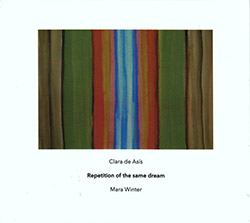
During pandemic lockdowns, flutist Mara Winter and experimentalist Clara de Asís explored locations of natural resonance to capture this mix of composition and improvisation, delicate and detailed recordings of diverse intent, using harmonically rich tones and textures that resonate in mysterious and haunting ways of beautiful dream-like secrets and reveries.
Out of Stock
Quantity in Basket: None
Log In to use our Wish List
Shipping Weight: 3.00 units
Sample The Album:
Clara de Asis-bowed percusion, electronics
Mara Winter-flutes
Click an artist name above to see in-stock items for that artist.
Label: Another Timbre
Catalog ID: at159
Squidco Product Code: 29588
Format: CD
Condition: New
Released: 2020
Country: UK
Packaging: Cardboard Gatefold
Recorded at Kartauserkirche, in Basel, Switzerland, in 2020, by Clara de Asis.
"Five pieces produced in collaboration during quarantine by Mara Winter (flutes) and Clara de Asis (bowed percussion, electronics). Recorded in the resonance of the Kartauserkirche in Basel, the music has a clarity and precision that those who follow Clara's music will recognise. "Texture-rich compositions, redolent of isolation and rumination".-Peter Margasak, Best of Bandcamp Contemporary Classical
Another Timbre Interview with Clara de Asís and Mara Winter
"I know that 'Repetition of the same dream' was created during lockdown - how did that work, and how was it producing music in these strange circumstances?
CA: I came to Basel to stay with Mara as soon as I heard about the likelihood of a lockdown in France. I took the first train in the morning and carried with me a couple of mics and objects I was using at the moment: a very tiny lo-fi guitar amplifier, a brush, small electronics, some beans. Mara and I were already working together and there were pieces that were coming into shape. I would go visit her in Basel or she would come visit me in Marseille. Last time that we had met, we had done this spontaneous home recording and we wanted to keep working on that. The possibility of the international borders closing down rushed me to go join her and also offered me the possibility of not having to come back to Marseille as soon as in a normal situation. When we had a glimpse of that possibility, the first thing we thought was: let's take that time to work on our music together.
The day after I arrived in Basel, we went to what was going to be the last flea market in town before quarantine. I wanted to get more elements to use in terms of sound; I found two bells and a metal object. Mara had just gotten a new bass flute, a very special one, and she would specifically use this flute for the music that we were working on together.
We also considered the space as an important part in the music we were making. For instance, 'A passage through' was created to be performed in a very resonant space. At first we started going to this underground tunnel in the empty city centre, in the middle of the night, at 3 am. Later we had the opportunity of accessing a church that was kept closed because of quarantine. It had extremely interesting resonant properties, which felt absolutely suitable for what we wanted to do.
We had got out of the ordinary everyday vortex to exist, if I can say, in a more instinctive, organic way; and I think this also affected the way we were making music.
Leaving out the catastrophic dimension of the global situation, the sudden "switch to uncertainty" of so many things that were taken for granted, far from being a traumatic experience to me, was kind of path-opening. Somehow it was a manifestation that everything can change - and so everything is possible.
How long have you been collaborating musically, and how did you meet each other?
MW: We met first on a personal level at the end of 2019, developing an immediate, deep connection. Even though I came from the path of historical performance, and Clara came mainly from experimental music, we discovered that we had some commonalities between our two aesthetics. Soon after meeting we began to cultivate a sound together. We would make informal recordings in various spaces around Basel and listen back to them, often waiting for many days to separate our ears from the immediate memory of their production, so that we could get an impression of the total sound from the outside. We often discussed the advantages and disadvantages of structure, indeterminacy, modality as the ultimate toolbox, our conflicting definitions of "improvisation", and the importance of openness in consideration of the music at hand. Perhaps unsurprisingly, things developed very fast between us since the first moment we played together. We are both quite obsessive about creative work and, for better or for worse, we seem to enhance those qualities in each other. From Clara, I can say I have learned how to really listen to a sound in ways that might have been unimaginable to me before we began our collaboration.
As I understand it, it wasn't simply Mara performing compositions by Clara, but your creative roles were varied and pretty fluid across the music on the CD. Could you explain how it worked?
CA: There were some pieces that I composed and others that were formed by Mara and I, where the roles of composer / performer dissolved into each other. 'A passage through' was composed specifically for Mara's bass flute, also relating very much to the context which we found ourselves in. This opened the possibility, first to go to that tunnel in the middle of the night and work on the music there, then to use the church - both spaces offering acoustic qualities that are essential to the piece. I would say that this composition is very specific in some aspects, and very open in other aspects and so, even if I composed it, Mara's approach in its realisation was determinant. 'Still water' and 'Wind that walks', are standard compositions. For the latter, we had this idea about streams of air and a noise element that doesn't have a distinct pitch, but which can be perceived as changing 'colour' sometimes. We worked on that material and once we developed it, we decided on a structure based on slight 'colour' variations over time. Also, we were interested in ambiguity and memory. I feel these factors are apparent throughout all the pieces in the album. In 'Wind that walks', there's a flute breath sound which is constantly on the edge of being a discernible melody, but that could also be 'air'. In 'Repetition of the same dream' there are elements that reappear in 'Present omission' under a different light, if I may say. In general we worked in a very intuitive way. We didn't want to restrict ourselves to fixed ideas about what roles each of us should have, and we didn't attempt to stick to one formula. Some pieces happened to be developed one way, others in another way.
Mara, I guess you'll be a new name to quite a few people. Can you tell us about your musical background?
My first direct experiences with music happened at a very early age. My grandmother was a church organist and carillon player at the local cathedral in the town where I grew up in the Eastern part of Washington state. The mysterious sensations I was confronted with listening to an organ, bells, or vocal polyphony in this quiet and dim church as a child pulled me in immediately. It was simultaneously frightening and mesmerizing, and it felt like the only "world" that I could be at home in. So, she taught me to play the piano and to read music around the age of five. I remember feeling really serious about music, even then, and spent a lot of time at home practising piano and messing around on her amazing home organ. A few years later I started learning to play the flute, and it basically took over my life. I followed a very traditional path for a classical musician: attending a performing arts high school, then starting a conservatory program. A year into my studies at this conservatory, I had a total burnout caused by my disenchantment with the reality of professional life as a classical musician, combined with prolonged illness caused by extreme stress. I dropped out and moved to the small town of Olympia, WA, and didn't touch a musical instrument for three years. None of my friends there even knew that I played music at all. I just decompressed for an extended period of time.
Anyway, after a few years went by, I felt ready to pick things up again. It took me about two years of attempting to perform on the modern flute until I realized I didn't actually enjoy the sound of the instrument, and I had an even greater dislike of the repertoire which existed for it, especially within the acceptable 20th-21st century canon. I had recently made some friends who were experimenting with performing on "historical" instruments, and I started to learn to play medieval, renaissance and baroque traverso. The warm, flexible tone and the possibilities for subtle ornamentation of the sound completely seduced me, and I switched to playing exclusively early flutes around 2012. Around this time I also became heavily interested in experimental, underground folk, drone, and industrial music, and recorded and toured with numerous bands around the Pacific Northwest in the years between 2012-2016 before moving to Europe. Meanwhile, I completed several performance degrees on historical flutes: most recently on medieval and renaissance traverso at the Schola Cantorum Basiliensis in Basel, Switzerland. I have fallen into a handful of major interests or specializations if you want to call it that. Most importantly: historical improvisation techniques, and instrumental accompaniment of medieval vocal monophony. I spend my time now performing with various early music groups, including the experimental medieval ensemble, Moirai, which I co-direct with Hanna Marti, and Phaedrus, a Renaissance traverso consort which was founded in 2019.
Looking to the future, I know that the two of you are jointly starting a new label. Can you tell us about that and the thinking behind it?
We decided to start the label after many discussions about the complementary aspects between so-called early and experimental music.
In general, early music performance practice appears to be very associated with academia, and has a tendency to be restricted by the dictations of a certain kind of aesthetic dogmatism. Yet, in many ways, the knowledge that we possess about how early western music may have sounded is very subjective, since there are many essential questions about its interpretation that cannot be answered with absolute information. Nonetheless, the more we look at the musicology that has continued to develop over the last century or so, the more possibilities for varying shades of musical interpretation present themselves. This indeterminacy implies a potential for creative openness and experimentation, which could easily bring together historically-informed and experimental contemporary music practices. For example, the inherent - but often forgotten - use of stylistic improvisation techniques in vocal and instrumental music from the Middle Ages all the way to the Romantic period. We see an important relationship between the flexibility found in many aspects of ancient music, and experimental music making.
We are also very interested in exploring compositional means in experimental music which could derive from historically-informed systems, and then to bring experimental music to face this reflection.
It seems to us that the convergence between both musical aesthetics can be a fertile one, and we have the impression that it hasn't developed very much yet. In this sense, many questions have already arisen, and there are plenty of aspects that we don't know exactly how to deal with. However, we have this sort of intuition that we try to follow. The creation of the label should serve to act as an apparatus that allows us to cultivate this ground, and we are excited to see what the fruit will look like."
Artist Biographies
• Show Bio for Clara de Asis "Clara de Asís (1988) is a Spanish composer and guitarist based in France. Her works involve electroacoustic, minimal approaches and studio composition. She uses different combinations of materials and sound sources, with a main focus on guitar. She has developed a non-conventional and personal instrumental approach; with longstanding interest in minimalist frameworks, spacial auscultation and simplicity. Her music has been showcased on many international scenes, and she has collaborated with artists such as Laura Vazquez, Noël Akchoté, d'Incise, Golem Mécanique, Bruno Duplant, Nicolas Dick, Miguel A. García, Héctor Rey, Lauri Hyvärinen." ^ Hide Bio for Clara de Asis • Show Bio for Mara Winter "Mara Winter has pursued a unique specialization in the performance of early transverse flutes of the Middle Ages and Renaissance. Her involvement in experimental, improvisational and electronic music genres has given her a captivating perspective on the interpretation of early western art music. On the other hand, her training as a historical flautist has provided a technical basis for her own compositions, which meditate on the myriad sound possibilities of period instruments set within the framework of contemporary space. She directs her ensemble Phaedrus, co-directs the ensemble Moirai and is a member of Rumorum, all based in Basel, Switzerland. She has performed and recorded with internationally recognized early music ensembles including Ensemble Leones, Ensemble Peregrina, J.S. Bach-Stiftung, La Scintilla (Zurich Opera), Il Gusto Barocco, Les Passions de L'Ame, Capriccio Barockorchester, Pacific Musicworks and others. Mara Winter began her studies in Seattle, WA, USA at Cornish College of the Arts with Baroque flutist Janet See. In 2018 she completed a Master's degree, with distinction, in Medieval and Renaissance traverso at the Schola Cantorum Basiliensis in Basel, Switzerland. In 2020 she will graduate from the Schola Cantorum with a Specialized Master's degree focusing exclusively on Renaissance traverso. Her main teachers at the Schola have been Johanna Bartz, Norbert Rodenkirchen, Crawford Young, Marc Lewon, Baptiste Romain and Kate Dineen. In March 2020, Mara co-founded the record label Discreet Editions together with composer and performer Clara de Asís. It fuses the realm of ancient music to that of contemporary, experimental composition through collaborations, commissions, structured improvisation and other, yet-to-be-named performance practices." ^ Hide Bio for Mara Winter
3/31/2025
Have a better biography or biography source? Please Contact Us so that we can update this biography.
3/31/2025
Have a better biography or biography source? Please Contact Us so that we can update this biography.
Track Listing:
1. Still Water 12:06
2. Wind That Walks 12:12
3. Repetition Of The Same Dream 2:31
4. Present Omission 5:36
5. A Passage Through 20:58
Compositional Forms
Electro-Acoustic
Woodwinds
Percussion & Drums
Duo Recordings
European Improvisation, Composition and Experimental Forms
Recordings Utilizing the Natural Resonance of a Space
Staff Picks & Recommended Items
New in Experimental & Electronic Music
Search for other titles on the label:
Another Timbre.


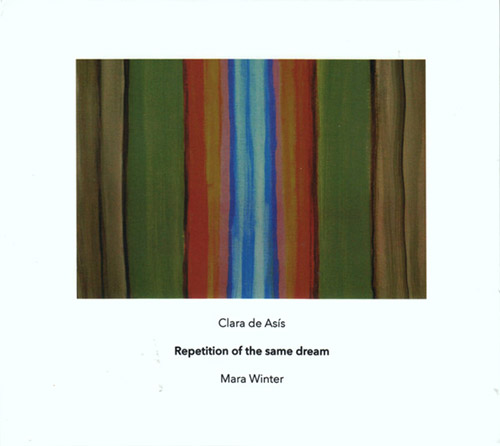
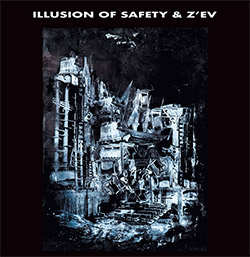


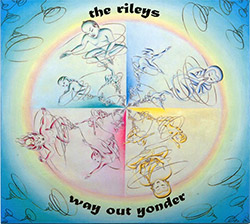

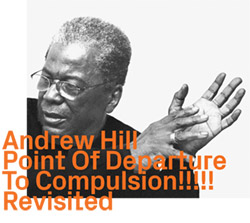



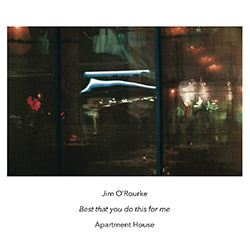



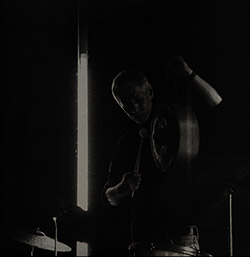

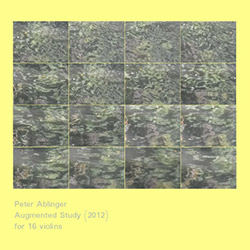
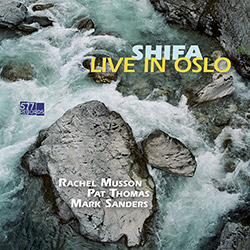
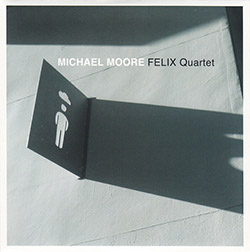
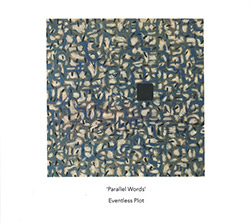

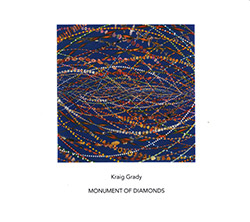
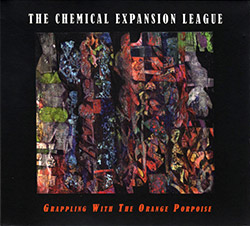

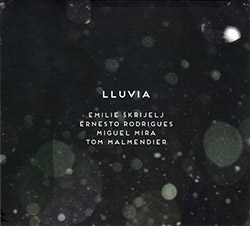
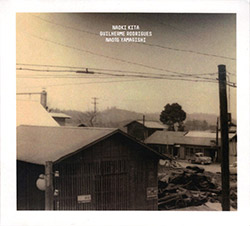


![Rodrigues, Ernesto / Nuno Torres / Guilherme Rodrigues: Whispers In The Moonlight - In Seven Movements [2CDs]](https://www.teuthida.com/productImages/misc4/35765.jpg)



![Cocks, Laura: FATHM [VINYL]](https://www.teuthida.com/productImages/misc4/36055.jpg)










![Ackerley / Prymek / Turner: All Hope With Sleeping Minds [CASSETTE]](https://www.teuthida.com/productImages/misc4/35950.jpg)
![Myers, David Lee : Tin Drop Tear [BOOK w/ DOWNLOAD]](https://www.teuthida.com/productImages/misc4/36030.jpg)



![Schindler, Udo / Sandy Ewen / Damon Smith: Munich Sound Studies Vols. 4, 5 & 6 [3 CDs]](https://www.teuthida.com/productImages/misc4/35966.jpg)






![Turbulence Orchestra & Sub-Units: Smear Out the Difficulties (Double Live) [2 CDs]](https://www.teuthida.com/productImages/misc4/36048.jpg)
![Perelman, Ivo / Tyshawn Sorey: Paralell Aesthetics [2 CDs]](https://www.teuthida.com/productImages/misc4/35871.jpg)


![Sjostrom, Harri: SoundScapes #4 Festival Berlin 2023 [3 CDs]](https://www.teuthida.com/productImages/misc4/35874.jpg)



![Glenn, Jordan: Flustered [CASSETTE]](https://www.teuthida.com/productImages/misc4/35948.jpg)


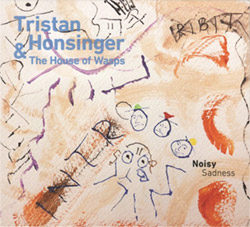
![Lindorff-Ellery, Evan: Church Recordings from Monhegan [CASSETTE]](https://www.teuthida.com/productImages/misc4/35949.jpg)
![Schindler, Udo / Werner Dafeldecker / Gunnar Geisse: Travelling Sound Images - Cognitive Transfers [Trio]](https://www.teuthida.com/productImages/misc4/35767.jpg)

![Egberth, Dennis: The Dennis Egberth Dynasty [VINYL]](https://www.teuthida.com/productImages/misc4/35549.jpg)


![Schindler, Udo / Rieko Okuda / Eric Zwang Eriksson: Disturbed Terrains [2 CDs]](https://www.teuthida.com/productImages/misc4/35330.jpg)






![Olencki, Weston : Pearls Ground Down To Powder [VINYL]](https://www.teuthida.com/productImages/misc4/35956.jpg)
![Myers, David Lee: Oculus [2CDs]](https://www.teuthida.com/productImages/misc4/35857.jpg)


![dustsceawung: dustsceawung [CASSETTE w/ Download]](https://www.teuthida.com/productImages/misc4/35753.jpg)




![Halls of the Machine: Atmospheres For Lovers And Sleepers [CASSETTE w/ DOWNLOAD]](https://www.teuthida.com/productImages/misc4/35806.jpg)



![AHC (Alexander Cooper): Lase [2 CDs]](https://www.teuthida.com/productImages/misc4/35754.jpg)



![Fagaschinski, Kai / Yan Jun : Graveyard Processions [VINYL w/ DOWNLOAD]](https://www.teuthida.com/productImages/misc4/35474.jpg)
![Brant, Cody / Carl Kruger: Smoke Detail [CASSETTE w/ DOWNLOAD]](https://www.teuthida.com/productImages/misc4/35551.jpg)








![Zorn, John / JACK Quartet: The Complete String Quartets [2 CDs]](https://www.teuthida.com/productImages/misc4/35609.jpg)

![Lonsdale, Eden: Dawnings [2 CDs]](https://www.teuthida.com/productImages/misc4/35480.jpg)







![Sanna, Claudio: Compositori Sardi Contemporanei II [2 CDs]](https://www.teuthida.com/productImages/misc4/35317.jpg)







![Zurria, Manuel: Fame di Vento [3 CDs]](https://www.teuthida.com/productImages/misc4/35167.jpg)

![Granberg, Magnus / Nattens Inbrott / Skogen: Holde Traume, Kehret Wieder! [2 CDs]](https://www.teuthida.com/productImages/misc4/35038.jpg)

![Electric Bird Noise / Derek Roddy: 8-10-22 [CD EP]](https://www.teuthida.com/productImages/misc4/35970.jpg)








![Elephant9 : Mythical River [VINYL]](https://www.teuthida.com/productImages/misc4/34624.jpg)



![Elephant9 with Terje Rypdal: Catching Fire [VINYL 2 LPs]](https://www.teuthida.com/productImages/misc4/35355.jpg)
![Deerlady (Obomsawin, Mali / Magdalena Abrego): Greatest Hits [VINYL]](https://www.teuthida.com/productImages/misc4/34876.jpg)







![Surplus 1980: Illusion of Consistency [CD]](https://www.teuthida.com/productImages/misc4/35069.jpg)
![Staiano, Moe: Away Towards the Light [VINYL + DOWNLOAD]](https://www.teuthida.com/productImages/misc4/35037.jpg)



![Caveira (Gomes / Sousa / Abras / Ferrandini): Ficar Vivo [VINYL]](https://www.teuthida.com/productImages/misc4/34643.jpg)
![Coley, Byron: Dating Tips for Touring Bands [VINYL]](https://www.teuthida.com/productImages/misc4/17906.jpg)

![Lost Kisses: My Life is Sad & Funny [DVD]](https://www.teuthida.com/productImages/misc4/lostKissesDVD.jpg)